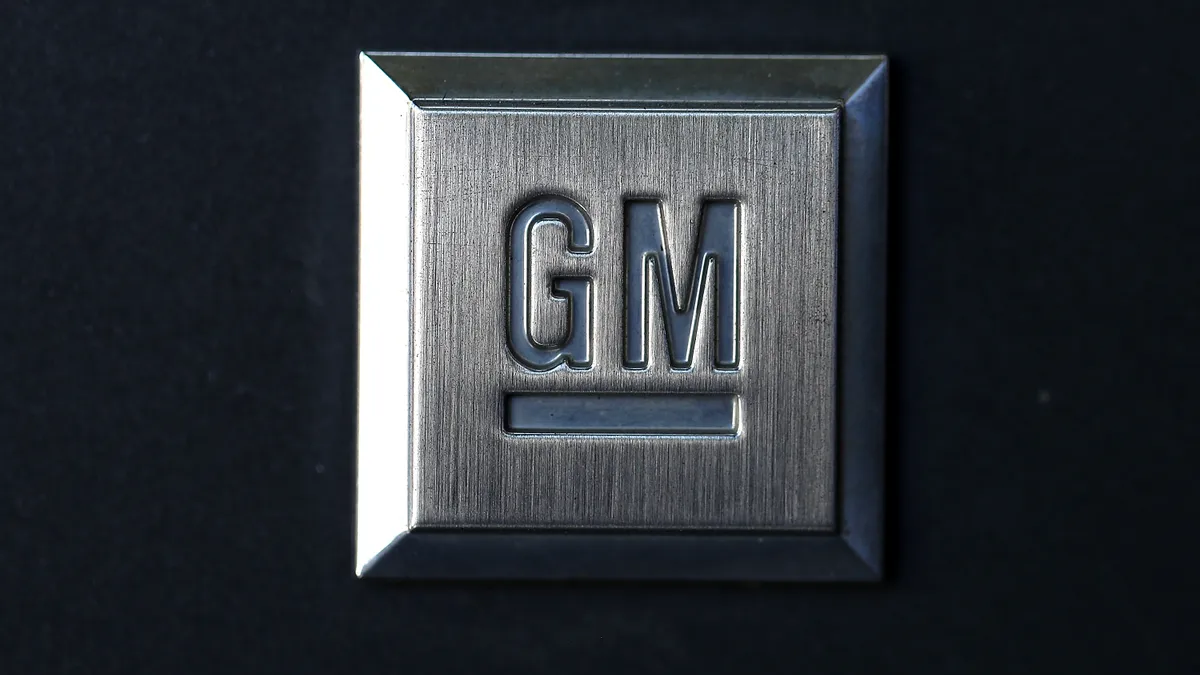Dive Brief:
- GM Financial has withdrawn its industrial loan company charter application to the Federal Deposit Insurance Corp., the company announced Monday.
- The application, submitted in 2020, gained conditional approval from the Utah Department of Financial Institutions on June 14. The approval “underscor[ed] ... that General Motors has the financial resources needed to operate an industrial bank in a safe and sound manner and in full compliance with applicable laws and regulations,” the company said.
- The withdrawal comes one business day after the FDIC approved its first ILC charter in four years. Thrivent Financial for Lutherans applied for its charter two months after GM Financial and received the FDIC’s green light Friday.
Dive Insight:
If GM’s application had been approved, it would have marked a return to the ILC format for the company, whose previous lending arm, GMAC, had held an ILC charter until 2008, when the Federal Reserve gave emergency approval to become a bank holding company.
The business model GM Financial proposed in its application is already used by several existing FDIC-insured industrial banks, including other auto manufacturers, the company said Monday. But it’s not being used by other American auto manufacturers, and the bank would “create value for consumers, dealers, the General Motors enterprise and American auto manufacturing in general, as well as address the imbalance of the current competitive landscape,” the firm said.
“GM Financial remains confident in the viability of our bank application, which is anchored by a proven, well-capitalized business model led by an experienced management team and supported by the company’s decades of financial services expertise,” Dan Berce, CEO of GM Financial, said in a statement. “Utah’s approval validates the strength of the bank’s proposed business plan and management team, and we look forward to refiling with the FDIC and UDFI.”
The ILC charter would have allowed GM Financial to accept deposits and a low-cost capital base to grow its business since the company issues debt to fund most of its lending to car buyers and dealers. The finance subsidiary also planned to use the charter to support its auto finance business and offer high-yield savings accounts and other products, a source told The Wall Street Journal in 2020.
GM Financial’s application withdrawal comes after Thrivent Financial for Lutherans received approval for an ILC charter from the FDIC on Friday to create Thrivent Bank. This is the first approval for an ILC after Block (then called Square) and Nelnet got theirs in 2020. TFL also got the go-ahead for the merger of Thrivent Federal Credit Union of Appleton, Wisconsin, into Thrivent Bank, to be headquartered in Salt Lake City.
TFL applied for an ILC charter with the FDIC in February 2021, within a week of San Francisco-based fintech Brex — one of a number of fintechs who chose the ILC path to get bank licenses — did the same. However, Brex withdrew its application in August of that year, saying it would strengthen and resubmit it later. Brex has not.
Investment company Edward Jones and e-commerce giant Rakuten have also withdrawn their applications for ILC charters. Rakuten tried four times but stepped back each time several months later.
The lengthy application process and numerous eligibility criteria are prompting some fintechs to have second thoughts on seeking a bank charter, S&P Global Intelligence has reported.
GM isn’t the first automaker to apply for a charter. Toyota and BMW have ILC charters, which were approved before the financial crisis of 2007-08.
Chatter surrounding ILC charter applications has seen an uptick recently.
In March, a group of senators led by Mitt Romney, R-UT, urged the FDIC to consider the pending ILC applications. Utah is home to 15 industrial banks that generate 6,000 jobs and $700 million in state GDP every year, according to the senators.
UDFI monitors more industrial banks than any state regulator and regulates nearly 87% of the country’s industrial bank assets.
However, the charter format has drawn criticism from trade groups and lawmakers who say it allows companies to provide banking services without the Fed’s oversight.
The ILC charter enables parent companies to operate FDIC-insured banks without being subject to Bank Holding Company Act regulations that govern traditional banks — a point of concern, according to Rebeca Romero Rainey, CEO of the Independent Community Bankers of America.
She highlighted potential issues, including conflicts of interest, risks to the FDIC's Deposit Insurance Fund, and threats to consumer privacy stemming from the commercial activities of ILC applicants.
“Further, with only Utah and a few other states granting ILC charters, this handful of states shouldn’t dictate U.S. banking policy or serve as safe havens for companies that are unwilling to comply with the same set of rules and regulations that otherwise apply to the traditional bank charter,” Romero said Friday.












